When you travel across Europe or the United States, you can usually rely on your daily go-to apps like Google Maps, Dropbox, Medium, Tinder, Gmail, Spotify and Uber. In China, none of these work.
China’s unique and insular tech
culture has spawned an entirely different set of companies and products
that people trust and love. If you’re headed to China, or simply want to
educate yourself about the Chinese tech landscape, we’ve summarized the
essentials for you:
Shenzhen is a center for technology due to its factories which produce all types of manufacturing, both low and high tech. The key corporate resident of note is Tencent, the juggernaut owner of WeChat, QQ and dozens of other essential Chinese tech products, websites and games.
Hangzhou is the hotbed of e-commerce companies, which flocked there after the founding and subsequent success of Alibaba. NetEase, one of China’s top gaming companies, is also headquartered here.
Shanghai, while an international business center, is known more for banking than technology, although a few notable companies call the city home.
1. WeChat (Social Networking)
If you could only pick one app, then get WeChat. With over 800 million active users, WeChat from Tencent is the one app to rule them all, combining social networking, multi-media messaging, and a rich ecosystem of capabilities that enable you to order taxis, buy movie tickets, pay your bills, and virtually anything you can imagine. You can even manage investments, donate to charities, and hire a dog washer on the platform! To learn the essential features of WeChat, check out our handy guide.
2. Baidu (Search)
Baidu is the king of search, the Google of China. Similar to Google, the company produces popular utilitarian products like Baidu Maps, which is one of the most popular navigation apps in the country. While the company has lagged Tencent and Alibaba in terms of recent growth, Baidu has been making significant investments in artificial intelligence, education and healthcare. Recently the company launched Duer OS, a conversational A.I. platform similar to Amazon’s Alexa.
3. Alibaba (E-Commerce)
On the e-commerce side, Alibaba is the dominant player. Taobao, owned by Alibaba, is a fee-free marketplace that connects buyers and sellers, similar to eBay but without the auction. The company generates revenue by selling ads against select pages and search results. Alibaba also owns Tmall, the site that that sells more branded products similar to Amazon Marketplace. Together, with Taobao, Tmall and its other ecommerce properties, Alibaba dominates almost 80% of all e-commerce in China.
4. Alipay & WeChat Pay (Payments)
The two top mobile payment platforms are Alibaba’s Alipay and WeChat Pay. Alipay tends to be used for larger purchases, and WeChat pay was traditionally seen more as a P2P (peer to peer) payment method. Residents in Tier 1 cities such as Shanghai and Beijing can go months without using cash. Even your trusty neighborhood fruit stand will have either one of these two payment systems available.
5. Weibo (Social Networking)
Weibo is the “Twitter of China” and went through a renaissance period of spectacular growth over the last few years. In 2013, the company started the strategy of paying niche-focused celebrities to influence the lower and middle classes of China on topics such as finance, education, travel, and more. The approach was a hit, generating 40% year over year growth of revenue and user base. Weibo is now larger than Twitter in both market cap and users. Perhaps we should start saying that Twitter is the “Weibo” of America?
6. Momo (Dating)
Momo was the first mainstream dating app in China. Like Tinder, the product was initially deemed as a “hookup” tool and had to include broader social networking feature to shake off the unfavorable reputable. Now, Momo also has a live streaming mode which is culturally very popular with the Chinese.
7. Meitu (Photos)
Meitu’s photo filter app is growing at a meteoric rate and recently made a huge push into the Western market. This company recently IPO’ed with a $5.2 billion valuation. Many Chinese women will only take photos that are filtered by Meitu because the app can fix their complexions, make their skin whiter, cheeks rosier, eyes larger, and faces slimmer. Nearly 50% of all selfies taken in China are processed by Meitu.
8. YouKu (Video)
YouKu is the Youtube of China, but was acquired by Alibaba for $4.8 billion in 2015 to bolster the company’s competitiveness with Baidu and Tencent in capturing internet user attention. Given that there are more Chinese who consumer internet video with mobile phones than there are total people living in America, this was a smart move by Jack Ma.
9. Didi ChuXing (Ride Sharing)
When Uber tried to enter China, Didi easily beat them out and acquired their Chinese assets in 2016. The company serves 300 million riders in 400 cities across China. Uber took 6 years to service 6 billion rides, while Didi drove 1.4 billion rides just in 2015, making the company the leading ride-sharing service in the world.
10. NetEase (Gaming)
NetEase is an old guard Chinese tech company which came on the scene during the Yahoo era. Unlike Yahoo, the company made a remarkable comeback by focusing on gaming and other markets. While not widely considered to be the most technically advanced or fastest mover, the company has a reputation for building solid products that reliably grow market share.
Where Is The Innovation?
First, some quick geography. There are five major areas of startup and technology. Beijing is the clear tech center. Baidu, the “Google of China”, is headquartered there and many others also choose the capital due to government proximity.Shenzhen is a center for technology due to its factories which produce all types of manufacturing, both low and high tech. The key corporate resident of note is Tencent, the juggernaut owner of WeChat, QQ and dozens of other essential Chinese tech products, websites and games.
Hangzhou is the hotbed of e-commerce companies, which flocked there after the founding and subsequent success of Alibaba. NetEase, one of China’s top gaming companies, is also headquartered here.
Shanghai, while an international business center, is known more for banking than technology, although a few notable companies call the city home.
Who’s On Top?
Hundreds of Chinese companies, products, and apps exist in every industry and vertical, so choosing only ten to feature is no easy task. We just want to make sure you know the common household names as well as useful products like Alipay and WePay which are owned by them.1. WeChat (Social Networking)
If you could only pick one app, then get WeChat. With over 800 million active users, WeChat from Tencent is the one app to rule them all, combining social networking, multi-media messaging, and a rich ecosystem of capabilities that enable you to order taxis, buy movie tickets, pay your bills, and virtually anything you can imagine. You can even manage investments, donate to charities, and hire a dog washer on the platform! To learn the essential features of WeChat, check out our handy guide.
2. Baidu (Search)
Baidu is the king of search, the Google of China. Similar to Google, the company produces popular utilitarian products like Baidu Maps, which is one of the most popular navigation apps in the country. While the company has lagged Tencent and Alibaba in terms of recent growth, Baidu has been making significant investments in artificial intelligence, education and healthcare. Recently the company launched Duer OS, a conversational A.I. platform similar to Amazon’s Alexa.
3. Alibaba (E-Commerce)
On the e-commerce side, Alibaba is the dominant player. Taobao, owned by Alibaba, is a fee-free marketplace that connects buyers and sellers, similar to eBay but without the auction. The company generates revenue by selling ads against select pages and search results. Alibaba also owns Tmall, the site that that sells more branded products similar to Amazon Marketplace. Together, with Taobao, Tmall and its other ecommerce properties, Alibaba dominates almost 80% of all e-commerce in China.
4. Alipay & WeChat Pay (Payments)
The two top mobile payment platforms are Alibaba’s Alipay and WeChat Pay. Alipay tends to be used for larger purchases, and WeChat pay was traditionally seen more as a P2P (peer to peer) payment method. Residents in Tier 1 cities such as Shanghai and Beijing can go months without using cash. Even your trusty neighborhood fruit stand will have either one of these two payment systems available.
5. Weibo (Social Networking)
Weibo is the “Twitter of China” and went through a renaissance period of spectacular growth over the last few years. In 2013, the company started the strategy of paying niche-focused celebrities to influence the lower and middle classes of China on topics such as finance, education, travel, and more. The approach was a hit, generating 40% year over year growth of revenue and user base. Weibo is now larger than Twitter in both market cap and users. Perhaps we should start saying that Twitter is the “Weibo” of America?
6. Momo (Dating)
Momo was the first mainstream dating app in China. Like Tinder, the product was initially deemed as a “hookup” tool and had to include broader social networking feature to shake off the unfavorable reputable. Now, Momo also has a live streaming mode which is culturally very popular with the Chinese.
7. Meitu (Photos)
Meitu’s photo filter app is growing at a meteoric rate and recently made a huge push into the Western market. This company recently IPO’ed with a $5.2 billion valuation. Many Chinese women will only take photos that are filtered by Meitu because the app can fix their complexions, make their skin whiter, cheeks rosier, eyes larger, and faces slimmer. Nearly 50% of all selfies taken in China are processed by Meitu.
8. YouKu (Video)
YouKu is the Youtube of China, but was acquired by Alibaba for $4.8 billion in 2015 to bolster the company’s competitiveness with Baidu and Tencent in capturing internet user attention. Given that there are more Chinese who consumer internet video with mobile phones than there are total people living in America, this was a smart move by Jack Ma.
9. Didi ChuXing (Ride Sharing)
When Uber tried to enter China, Didi easily beat them out and acquired their Chinese assets in 2016. The company serves 300 million riders in 400 cities across China. Uber took 6 years to service 6 billion rides, while Didi drove 1.4 billion rides just in 2015, making the company the leading ride-sharing service in the world.
10. NetEase (Gaming)
NetEase is an old guard Chinese tech company which came on the scene during the Yahoo era. Unlike Yahoo, the company made a remarkable comeback by focusing on gaming and other markets. While not widely considered to be the most technically advanced or fastest mover, the company has a reputation for building solid products that reliably grow market share.
១០ សេវាកម្ម និង ផលិតផលបច្ចេកវិទ្យាកំពូលៗនៅប្រទេសចិន
ប្រទេសចិន
ជាប្រទេសប្រមូលផ្ដុំនូវសេវាកម្មនិងផលិតផលបច្ចេកវិទ្យាកំពូលៗជាច្រើន។
មានទីក្រុង ៤ ដែលពេញនិយមខ្លាំងរួមមាន ទីក្រុងប៉េកាំង
ដែលមានមជ្ឈមណ្ឌលបច្ចេកវិទ្យា Baidu ជាប់ឈ្មោះជា Google
របស់ប្រទេសចិន, ទីក្រុងស្សិនចេន
ដែលភាគច្រើនមានសុទ្ធតែរោងចក្រផលិតតាំងពីឧបករណ៍បច្ចេកវិទ្យាលំដាប់តូចដល់ខ្ពស់
ហើយមានការិយាល័យក្រុមហ៊ុន Tencent នៅទីនោះ
ដែលជាក្រុមហ៊ុនបង្កើតកម្មវិធី WeChat និង QQ, ទីក្រុងហាំងចូវ
បណ្ដុំនៃក្រុមហ៊ុនពាណិជ្ជកម្មអេឡិចត្រូនិករួមមាន Alibaba និង NetEase
និងទីក្រុងសៀងហៃដែលជាតំបន់ធ្វើពាណិជ្ជកម្មអន្តរជាតិ
ច្រើនមានធនាគារជាងក្រុមហ៊ុនបច្ចេកវិទ្យា។
+សេវាកម្មនិងផលិតផលល្បីៗទាំង ១០ របស់ប្រទេសចិន ៖
១. WeChat (កម្មវិធីបណ្ដាញសង្គម) ៖
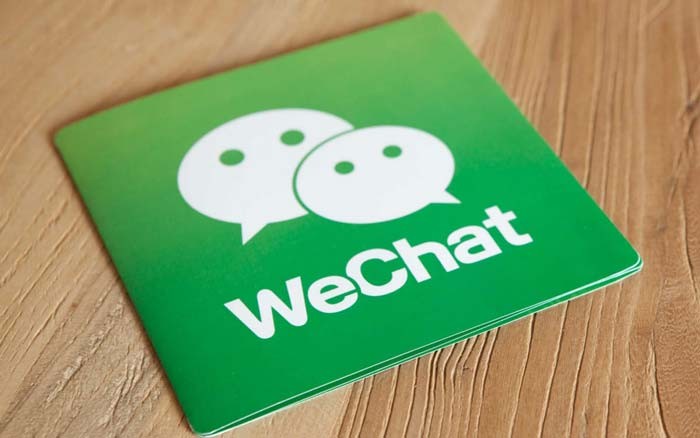
ជាកម្មវិធីស្ថិតក្រោមទ្រនំរបស់ក្រុមហ៊ុន Tencent ហើយបច្ចុប្បន្នមានអ្នកប្រើប្រាស់ ៨០០ លាននាក់ ដោយវាជាបណ្តាញសង្គមពេញនិយមកំពូលក្នុងស្រុក។ យើងប្រើប្រាស់សម្រាប់ធ្វើការ ទំនាក់ទំនងជាមួយមិត្តភ័ក្ដិជាលក្ខណៈផ្ញើសារអក្សរ, សម្លេង និងរូបភាពជាដើម។
២. Baidu (កម្មវិធី Search) ៖
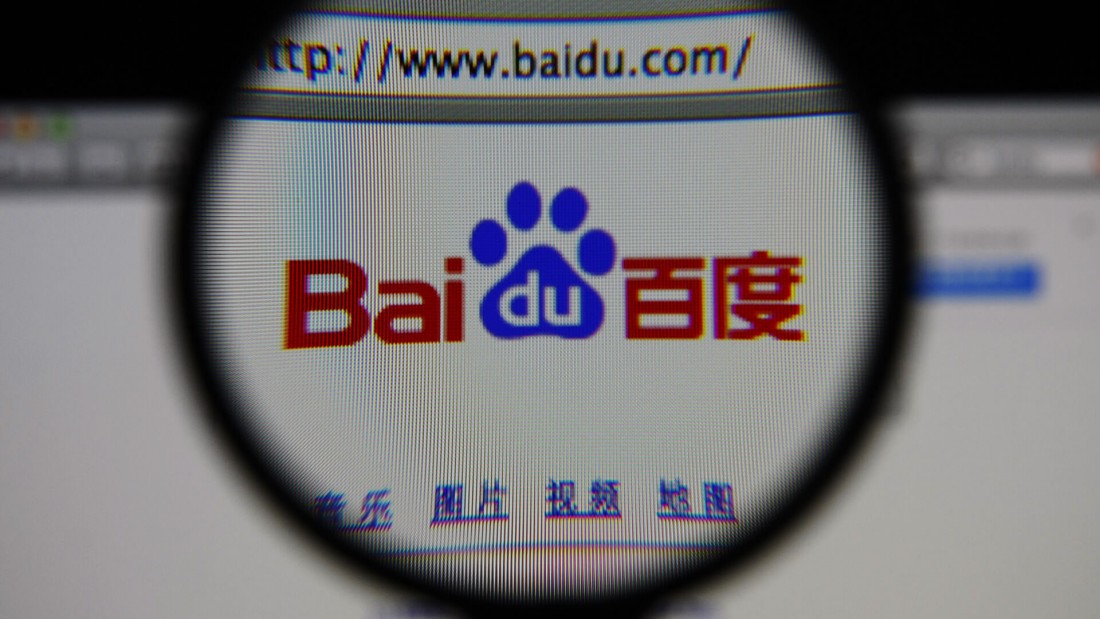
Baidu អាចហៅថាជា Google របស់ប្រទេសចិន ដោយវាថែមទាំងមានកម្មវិធី Baidu Maps ប្រហាក់ប្រហែលទៅនឹង Google Maps ដែរ។ ទៀតសោតកាលពីពេលកន្លងទៅ ក្រុមហ៊ុនយក្សមួយនេះក៏ទើតប្រកាសបង្ហាញនូវប្រព័ន្ធប្រតិបត្តិ Duer OS ដែលស្រដៀងនឹង Alexa របស់ក្រុមហ៊ុនអាមេរិក Amazon។
៣. Alibaba (ក្រុមហ៊ុនពាណិជ្ជកម្ម) ៖
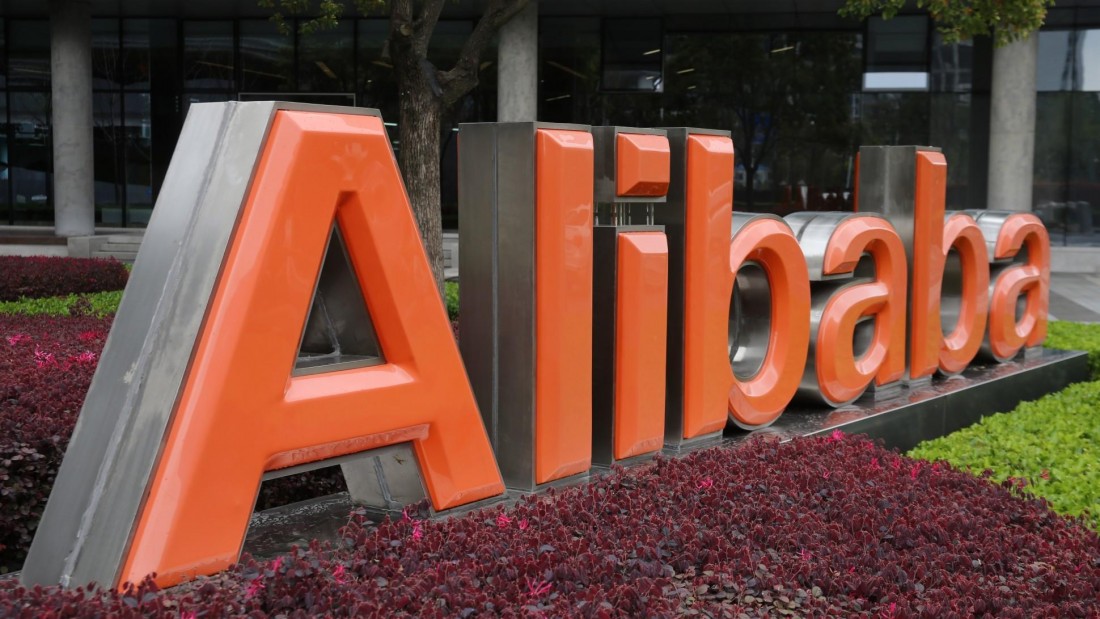
Alibaba ជាក្រុមហ៊ុនពាណិជ្ជកម្មមួយ ដែលបង្កើតនូវកម្មវិធីផ្សារលក់ទំនិញអន្តរជាតិ មិនថាតែ Taobao និង Tmall ក៏ស្ថិតក្រោមការគ្រប់គ្រងរបស់វាផងដែរ។ មានលក្ខណៈស្រដៀងទៅនឹង eBay, Amazon ប៉ុន្តែមិនមានការលក់ជាប្រភេទដេញថ្លៃនោះទេ។ ក្រុមហ៊ុន Alibaba កាន់កាប់សេដ្ឋកិច្ចពាណិជ្ជកម្មប្រមាណ ៨០ ភាគរយ ក្នុងប្រទេសចិន។
៤. Alipay & WeChat Pay (សេវាកម្មទូទាត់ទំនិញ) ៖
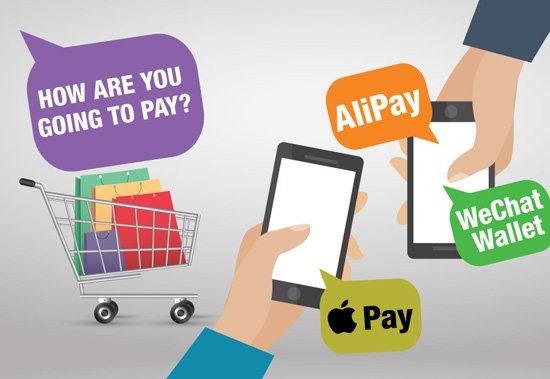
Alipay ជាសេវាកម្មរបស់ Alibaba ហើយ WeChat Pay ជារបស់ Tencent ដោយវាសុទ្ធសឹងជាសេវាកម្មទូទាត់ទំនិញខ្នាតធំនិងតូច។ មនុស្សជាច្រើនរស់នៅក្នុងទីក្រុងសៀងហៃនិងប៉េកាំងច្រើនប្រើសេវាកម្មទាំង ២ នេះ ដោយមិនសូវប្រើប្រាស់ក្រដាសប្រាក់ចេញពីហោប៉ៅឡើយ ក្នុងការទិញទំនិញផ្សេងៗ។
៥. Weibo (បណ្ដាញសង្គម) ៖
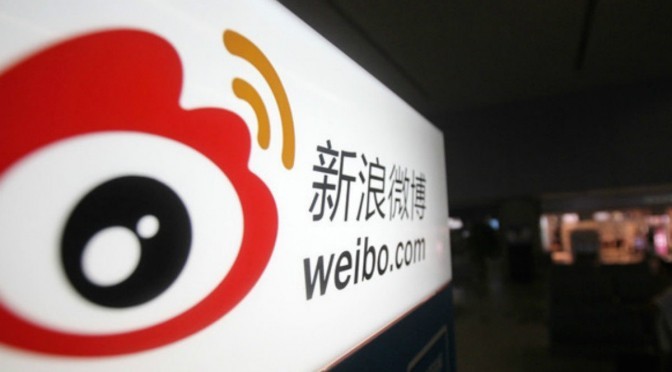
Weibo ជាបណ្តាញសង្គមកូនកាត់ Twitter ។ ចំណូលរបស់ក្រុមហ៊ុននេះ មានការកើនឡើងប្រមាណ ៤០ ភាគរយក្នុងឆ្នាំកន្លងទៅ ដោយឡែកបច្ចុប្បន្នទាំងចំនួនអ្នកប្រើប្រាស់ ក៏ដូចជាទីផ្សាររបស់ Weibo បានវ៉ាដាច់ Twitter របស់អាមេរិកបាត់ទៅហើយ។
៦. Momo (កម្មវិធីជួបគូណាត់) ៖
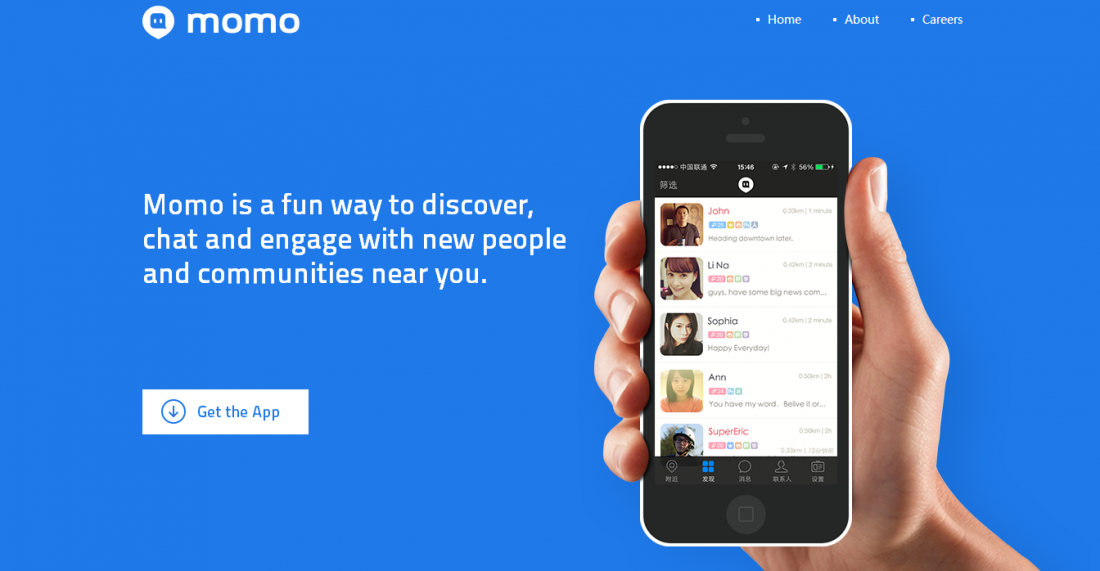
Momo ជាកម្មវិធីជួបគូណាត់ដំបូងបង្អស់ក្នុងប្រទេសចិន មិនខុសពី Tinder ដែលជាការមធ្យោបាយរកស្នេហាតាមប្រព័ន្ធអ៊ីនធឺណិត។ បច្ចុប្បន្នវាកំពុងពេញនិយមខ្លាំងមែនទែនក្នុងស្រុក។
៧. Meitu(កម្មវិធីកាត់តរូបភាព) ៖

មានប្រមាណជាង ៥០ ភាគរយនៃរូបភាព Selfie ដែលបង្ហោះចេញ គឺប្រើប្រាស់កម្មវិធី Meitu។ ប្រើដើម្បីជួយកែច្នៃសម្រស់របស់អ្នកឱ្យមានសភាពសចែងចាំង បាត់ស្នាមលើផ្ទៃមុខ និងពង្រីកគ្រាប់ភ្នែកឱ្យធំជាដើម។ កន្លងទៅតម្លៃខ្លួនក្រុមហ៊ុនមួយនេះ បានឡើងដល់ ៥,២ ពាន់លានដុល្លារ។
៨. YouKu (បណ្ដាញទស្សនាវីដេអូ) ៖
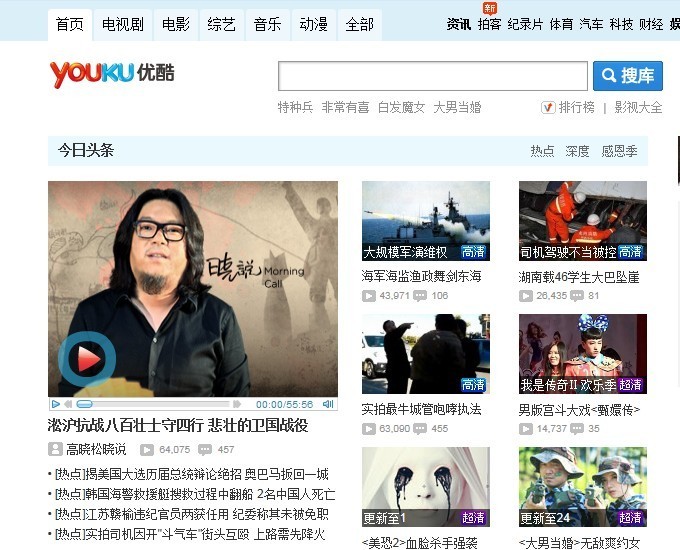
YouKu ជា YouTube របស់ប្រទេសចិន ដោយកាលពីឆ្នាំ ២០១៥ កន្លងទៅ ក្រុមហ៊ុន Alibaba បានទិញយកក្នុងតម្លៃប្រមាណ ៤,៨ ពាន់លានដុល្លារ ក្នុងគោលដៅប្រកួតប្រជែងលើប្រព័ន្ធអ៊ីនធឺណិតជាមួយក្រុមហ៊ុន Tencent និង Baidu។ ស្ថិតក្រោមការគ្រប់គ្រងរបស់ Jack Ma បណ្ដាញទស្សនាវីដេអូមួយនេះ មានចំនួនប្រជាជនក្នុងស្រុកទស្សនាច្រើនជាងប្រជាជនសរុបក្នុងទឹកដីអាមេរិកទៅទៀត។
៩. Didi Chuxing (ក្រុមហ៊ុនដឹកអ្នកដំណើរ) ៖
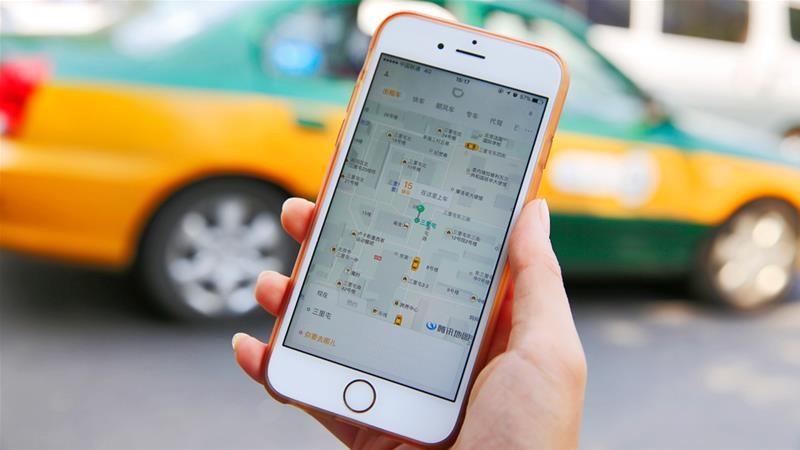
ក្រុមហ៊ុនបម្រើសេវាកម្មដឹកអ្នកដំណើរមួយនេះ បច្ចុប្បន្នកំពុងបម្រើមនុស្សប្រមាណ ៣០០ លាននាក់ ក្នុងទីក្រុងជាង ៤០០ ជុំវិញប្រទេសចិន។ Uber ចំណាយពេល ៦ ឆ្នាំដើម្បីបម្រើអ្នកធ្វើដំណើរបាន ៦ ពាន់លាននាក់ ខណៈក្រុមហ៊ុននេះចំណាយពេលត្រឹមមួយឆ្នាំ នាឆ្នាំ ២០១៥ បម្រើបានដល់ ១,៤ ពាន់លាននាក់ឯណោះ។
១០. NetEase (ក្រុមហ៊ុនហ្គេម) ៖

NetEase ជាក្រុមហ៊ុនប្រទេសចិន ដែលផ្ដល់សេវាលេងហ្គេមលើអ៊ីនធឺណិតស្រដៀងទៅនឹង Yahoo ដែរ។ ដោយទោះបីជាពុំមានភាពល្បីល្បាញខ្លាំង ប៉ុន្តែក្រុមហ៊ុនចិនមួយនេះ កំពុងព្យាយាមបង្កើតផលិតផលដែលអាចបង្កើនចំណែកទីផ្សារបន្ថែមទៀត៕
+សេវាកម្មនិងផលិតផលល្បីៗទាំង ១០ របស់ប្រទេសចិន ៖
១. WeChat (កម្មវិធីបណ្ដាញសង្គម) ៖

ជាកម្មវិធីស្ថិតក្រោមទ្រនំរបស់ក្រុមហ៊ុន Tencent ហើយបច្ចុប្បន្នមានអ្នកប្រើប្រាស់ ៨០០ លាននាក់ ដោយវាជាបណ្តាញសង្គមពេញនិយមកំពូលក្នុងស្រុក។ យើងប្រើប្រាស់សម្រាប់ធ្វើការ ទំនាក់ទំនងជាមួយមិត្តភ័ក្ដិជាលក្ខណៈផ្ញើសារអក្សរ, សម្លេង និងរូបភាពជាដើម។
២. Baidu (កម្មវិធី Search) ៖

Baidu អាចហៅថាជា Google របស់ប្រទេសចិន ដោយវាថែមទាំងមានកម្មវិធី Baidu Maps ប្រហាក់ប្រហែលទៅនឹង Google Maps ដែរ។ ទៀតសោតកាលពីពេលកន្លងទៅ ក្រុមហ៊ុនយក្សមួយនេះក៏ទើតប្រកាសបង្ហាញនូវប្រព័ន្ធប្រតិបត្តិ Duer OS ដែលស្រដៀងនឹង Alexa របស់ក្រុមហ៊ុនអាមេរិក Amazon។
៣. Alibaba (ក្រុមហ៊ុនពាណិជ្ជកម្ម) ៖

Alibaba ជាក្រុមហ៊ុនពាណិជ្ជកម្មមួយ ដែលបង្កើតនូវកម្មវិធីផ្សារលក់ទំនិញអន្តរជាតិ មិនថាតែ Taobao និង Tmall ក៏ស្ថិតក្រោមការគ្រប់គ្រងរបស់វាផងដែរ។ មានលក្ខណៈស្រដៀងទៅនឹង eBay, Amazon ប៉ុន្តែមិនមានការលក់ជាប្រភេទដេញថ្លៃនោះទេ។ ក្រុមហ៊ុន Alibaba កាន់កាប់សេដ្ឋកិច្ចពាណិជ្ជកម្មប្រមាណ ៨០ ភាគរយ ក្នុងប្រទេសចិន។
៤. Alipay & WeChat Pay (សេវាកម្មទូទាត់ទំនិញ) ៖

Alipay ជាសេវាកម្មរបស់ Alibaba ហើយ WeChat Pay ជារបស់ Tencent ដោយវាសុទ្ធសឹងជាសេវាកម្មទូទាត់ទំនិញខ្នាតធំនិងតូច។ មនុស្សជាច្រើនរស់នៅក្នុងទីក្រុងសៀងហៃនិងប៉េកាំងច្រើនប្រើសេវាកម្មទាំង ២ នេះ ដោយមិនសូវប្រើប្រាស់ក្រដាសប្រាក់ចេញពីហោប៉ៅឡើយ ក្នុងការទិញទំនិញផ្សេងៗ។
៥. Weibo (បណ្ដាញសង្គម) ៖

Weibo ជាបណ្តាញសង្គមកូនកាត់ Twitter ។ ចំណូលរបស់ក្រុមហ៊ុននេះ មានការកើនឡើងប្រមាណ ៤០ ភាគរយក្នុងឆ្នាំកន្លងទៅ ដោយឡែកបច្ចុប្បន្នទាំងចំនួនអ្នកប្រើប្រាស់ ក៏ដូចជាទីផ្សាររបស់ Weibo បានវ៉ាដាច់ Twitter របស់អាមេរិកបាត់ទៅហើយ។
៦. Momo (កម្មវិធីជួបគូណាត់) ៖

Momo ជាកម្មវិធីជួបគូណាត់ដំបូងបង្អស់ក្នុងប្រទេសចិន មិនខុសពី Tinder ដែលជាការមធ្យោបាយរកស្នេហាតាមប្រព័ន្ធអ៊ីនធឺណិត។ បច្ចុប្បន្នវាកំពុងពេញនិយមខ្លាំងមែនទែនក្នុងស្រុក។
៧. Meitu(កម្មវិធីកាត់តរូបភាព) ៖

មានប្រមាណជាង ៥០ ភាគរយនៃរូបភាព Selfie ដែលបង្ហោះចេញ គឺប្រើប្រាស់កម្មវិធី Meitu។ ប្រើដើម្បីជួយកែច្នៃសម្រស់របស់អ្នកឱ្យមានសភាពសចែងចាំង បាត់ស្នាមលើផ្ទៃមុខ និងពង្រីកគ្រាប់ភ្នែកឱ្យធំជាដើម។ កន្លងទៅតម្លៃខ្លួនក្រុមហ៊ុនមួយនេះ បានឡើងដល់ ៥,២ ពាន់លានដុល្លារ។
៨. YouKu (បណ្ដាញទស្សនាវីដេអូ) ៖

YouKu ជា YouTube របស់ប្រទេសចិន ដោយកាលពីឆ្នាំ ២០១៥ កន្លងទៅ ក្រុមហ៊ុន Alibaba បានទិញយកក្នុងតម្លៃប្រមាណ ៤,៨ ពាន់លានដុល្លារ ក្នុងគោលដៅប្រកួតប្រជែងលើប្រព័ន្ធអ៊ីនធឺណិតជាមួយក្រុមហ៊ុន Tencent និង Baidu។ ស្ថិតក្រោមការគ្រប់គ្រងរបស់ Jack Ma បណ្ដាញទស្សនាវីដេអូមួយនេះ មានចំនួនប្រជាជនក្នុងស្រុកទស្សនាច្រើនជាងប្រជាជនសរុបក្នុងទឹកដីអាមេរិកទៅទៀត។
៩. Didi Chuxing (ក្រុមហ៊ុនដឹកអ្នកដំណើរ) ៖

ក្រុមហ៊ុនបម្រើសេវាកម្មដឹកអ្នកដំណើរមួយនេះ បច្ចុប្បន្នកំពុងបម្រើមនុស្សប្រមាណ ៣០០ លាននាក់ ក្នុងទីក្រុងជាង ៤០០ ជុំវិញប្រទេសចិន។ Uber ចំណាយពេល ៦ ឆ្នាំដើម្បីបម្រើអ្នកធ្វើដំណើរបាន ៦ ពាន់លាននាក់ ខណៈក្រុមហ៊ុននេះចំណាយពេលត្រឹមមួយឆ្នាំ នាឆ្នាំ ២០១៥ បម្រើបានដល់ ១,៤ ពាន់លាននាក់ឯណោះ។
១០. NetEase (ក្រុមហ៊ុនហ្គេម) ៖

NetEase ជាក្រុមហ៊ុនប្រទេសចិន ដែលផ្ដល់សេវាលេងហ្គេមលើអ៊ីនធឺណិតស្រដៀងទៅនឹង Yahoo ដែរ។ ដោយទោះបីជាពុំមានភាពល្បីល្បាញខ្លាំង ប៉ុន្តែក្រុមហ៊ុនចិនមួយនេះ កំពុងព្យាយាមបង្កើតផលិតផលដែលអាចបង្កើនចំណែកទីផ្សារបន្ថែមទៀត៕



0 comments:
Post a Comment